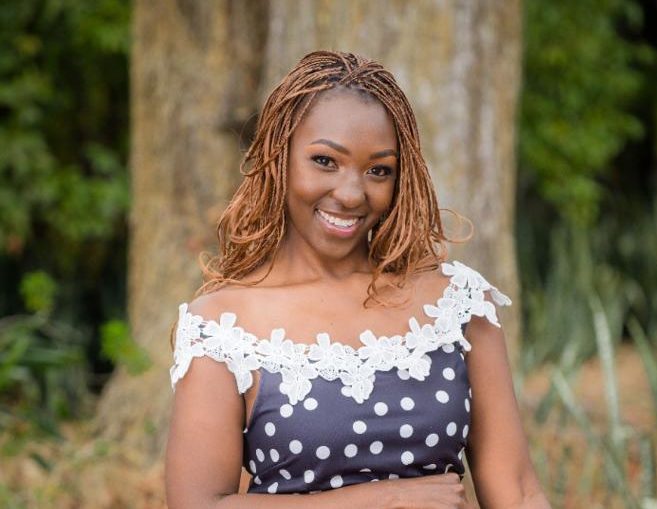Below is a piece that was exclusively written by a survivor of cancer to the Daily News on Sunday to mark the day.
By Marlene Chiedza Gadzirayi
A COUPLE of months ago, I received a message from Tanyaradzwa, a gentleman based in Chiredzi. He had just been diagnosed with colon cancer and was in low spirits. He needed to talk to someone who had gone through cancer for encouragement and advice. I assured him that I would journey with him and share my experience as a guide.
However, I soon realised that our pathway to healing was quite parallel. The hurdles that awaited him were nothing I had encountered. The first issue being geographical location. Hailing from Chiredzi translated into numerous trips to Harare to access treatment. Furthermore, he had no relatives in Harare to host him when he traveled for chemotherapy. He needed a total of 13 sessions, which were spaced three weeks apart. With the assistance of a well-wisher, I sourced discounted accommodation for him. He has so far done four sessions, but says the travelling is strenuous physically and financially, and he is now considering stopping treatment.
Rudo, another acquaintance I made, is suffering from breast cancer. She lives in Kwekwe and requires radiotherapy as part of her treatment. Again, her road to healing is so long due to a number of issues. The oncologist who attends to her is based in Harare and sometimes travels to Gweru to attend to cancer patients. This means that Rudo travels to Gweru for consultation and then to Harare for radiotherapy treatment. As we speak, Rudo’s treatment has been suspended because the radiotherapy machine at Parirenyatwa hospital is not working and the one at Mpilo hospital as well. All this coming after a six-month wait to access the machine, as at any point there are more than 200 cancer patients on the radiotherapy waiting list. Tragically, only one radiotherapy machine was working in all of 2021. Rudo is understandably dejected and wonders if the cancer will ever be treated in light of the challenges she is facing.
When I met Mr Rwafa, a lung cancer patient from Banket, he was suicidal. I listened intently as he narrated how, before he was diagnosed, he had a functional medical aid scheme that covered his bills and appointments. However, when the cancer diagnosis came, the tests, scans and visits to specialists diminished his funds. As the co-payments continued to rise, he became more of a cash patient and was not even halfway through his treatment.
He told me that he was going to stop treatment because he felt he would die anyway and needed to leave his family with some money to survive. He felt like a burden especially to his wife who had to drive him to and from Harare for his appointments. He stopped treatment and deteriorated fast till he died on the 8th of January 2022.
I was introduced to Mai Dylan by a former colleague of mine. Dylan, 12, had been diagnosed with cancer and his left leg was swelling to the point of him missing school for days on end. She told me she would not consider chemotherapy for her son because she heard that chemotherapy causes death in cancer patients. Proof of life is what she needed when I met her. I shared my journey with her and explained how chemotherapy worked, but she insisted on going the herbal route as advised by a relative. To cut a long story short, Dylan’s left leg was amputated last October and he is now receiving chemotherapy as the cancer has advanced.
Through my cancer journey, which started in 2019, I have come to the realisation that I am one of the very few lucky ones to be still alive. Being based in Harare is the first blessing I count. As I progressed with radiotherapy, I developed wounds and sores that made it difficult for me to sit properly, and so I spent most of my time in bed, and I would lie in the backseat of the car when I was taken to my sessions. Such luxury! I think of Rudo who has to hitch hike to Gweru and to Harare for her sessions, sitting upright in public transport for hours, in pain.
I think of Tanyaradzwa whom I assist in sourcing accommodation when he comes to Harare for chemotherapy. Luckily for me, I would go home after every treatment session and had the luxury of arriving to a warm meal, home to family that would dote on me, cleaning up my mess as I threw up endlessly. But Tanyaradzwa has to use public transport to the lodge where he stays, literally running in to use the bathroom as diarrhea grips, and failing to flush the toilet because there is no water.
There is no one to cook for Tanyaradzwa at the lodge, and despite the healthy diet advice he receives from his doctor, he can but only buy fast food to preserve his energy. The fast food that, because his immune system is compromised by cancer, will hand him an embarrassing moment with another bout of diarrhea on the Chiredzi-bound bus. Yes, he called me last November when the unfortunate incident happened. We laugh about it now, but at the time the shame that enveloped him as passengers jeered at him made him despise himself for being a cancer patient. The stigma is real!
When I think of the late Mr Rwafa and how the financial burden led him to take the drastic decision of quitting treatment, I count myself lucky again. At the time I was diagnosed with cancer, I was on the ‘probation’ period of the medical aid scheme I had joined. This meant that I was to be a cash patient while paying the monthly subscriptions to try to get past the set waiting period.
But with oncology having a two-year waiting period, it was better to channel the subscription money to medication needed then.
As the bills gathered daily, I received financial support from family, friends, church mates, colleagues and strangers. I was so cushioned I had a journey that the majority of cancer patients in Zimbabwe do not have. Fortunately, or unfortunately, no cancer journey is the same. I say this because a lot of times the first question many patients ask me is, ‘How much will this cost me?’ There is no clear answer.
The medication prescribed by doctors may be different, the dosages may also be different. The number of chemotherapy and/or radiotherapy sessions that one needs may be different. The side effects that one encounters differ from one person to the next, which means that the medication needed to deal with the side effects varies from patient to patient. Even if two patients are diagnosed with, say, prostate cancer, there are more issues and tests that are carried out to determine the treatment plan that each patient will receive. Some patients need hospitalisation during treatment, others need ambulance care, I needed blood transfusion and hospitalisation during my treatment, and those costs may not be incurred by the next patient.
Celebrated every 4th of February, the World Cancer Day is a day set aside to raise cancer awareness, encourage its prevention, detection and treatment. The year 2022 marks the first year of a new three-year campaign centered on the issue of equity. The campaign theme, ‘Close the care gap’ is all about raising awareness of this equity gap that affects almost everyone in high as well as low and middle-income countries.
This first year of the ‘Close the Care Gap’ campaign is all about understanding and recognising the inequities in cancer care around the globe, having an open mind, challenging assumptions and looking at the hard facts:
Inequity in cancer care costs lives.
People who seek cancer care hit barriers at every turn.
Income, education, location and discrimination based on ethnicity, gender, sexual orientation, age, disability and lifestyle are just a few of the factors that can negatively affect care.
With a multidisciplinary approach used in cancer care, there is need to ease the financial burden on cancer patients. The cost of chemotherapy drugs is beyond the reach of many. With 60 percent of cancer patients needing radiotherapy, the constant machine down time at public health facilities negatively impacts radiotherapy services, notwithstanding the fact that these machines are only in Harare and Bulawayo.
A multi-year campaign means more exposure and engagement, more opportunities to build global awareness and ultimately more impact. The main focus for the year 2022 is ‘Realising the problem,’ while 2023 will be about ‘Uniting our voices and taking action,’ and 2024 will round up the campaign with the thrust being challenging those in power.
This is the year to question the status quo and help reduce stigma; to listen to the perspectives of the people living with cancer and their communities and let those lived experiences guide our thoughts and actions.
That’s how we can begin to imagine a better way of doing things and to build a fairer vision of the future – a future where people live healthier lives and have better access to health and cancer services, no matter where they are born, grow, age, work or live.
Marlene Chiedza Gadzirayi is a cancer survivor.




